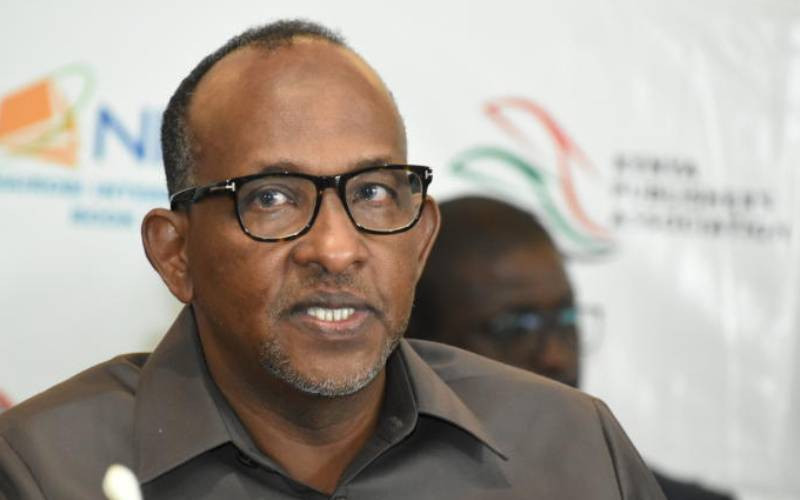Kenya: The scales on her skin first appeared in 2008 after completing secondary school education. Today, Hellen Wangui is grateful that a supportive network of friends and family stood by her when the medical sojourns to tame a skin condition that had afflicted her hands, legs and scalp started.
A study of tissue removed from Wangui’s skin established that she had psoriasis. What was initially treated as a fungal infections by myriad doctors, was later found out to be a skin disease that this year received global acclamation as a non-communicable disease at the World Health Organisation Assembly.
The diagnosis saw the 25-year-old lawyer begin a journey not only to understand the disease for her personal wellness but also became a national ambassador to create awareness of the skin condition.
“The skin appears scaly and especially on areas quite visible like hands, hairline, face, legs and neck. But I have learnt to create awareness whenever curious eyes focus on me,” she says. “I had a lot of dandruff that could not be treated by most shampoos in the market and when they didn’t clear, I became frustrated,’ Wangui told The Standard on Saturday.
Skin specialist Evans N Kamuri says the disease is now a priority because obese patients with psoriasis are predisposed to diabetes and heart disease. “We are laying more emphasis to deal with it at an early age to prevent more complicated conditions like diabetes, and others,” Dr Kamuri points out. In Kenya, 18 dermatologists care for 40 million people making detection, treatment and management of psoriasis a mirage, especially in the public health system.
Even the number of persons with the disease remains unavailable for health experts and policy makers. Wangui has called for concerted efforts to end stigma over the skin condition that robs patients of their self-esteem, preventing them from seeking treatment.
It’s estimated that 800,000 people in Kenya suffer from psoriasis but few have been diagnosed and sought appropriate treatment.
The exact trigger, which speeds up the rate at which skin cells are produced and shed is yet to be established.
According to Dr Kamuri, a normal skin cell matures and is shed from the body in 28 to 30 days but in a psoriasis patient, in only three to four days, the skin cells are mature and instead of falling off they form a mass on the surface of the skin.
Self-consciousness, embarrassment, despair and rejection are common feelings in patients with the condition given the scaly appearance of the disease many times mistaken for ringworms or other fungal infections that affect self esteem.
“I joined the Psoriasis Association of Kenya eight years ago where I met patients, doctors, and other advocates who encouraged me that we are working towards a common goal to make psoriasis a visible condition in Kenya, regionally and later in Africa,” Wangui added.
It affected my public interactions, but not anymore, she declares adding the support group has seen her immensely gain from sharing her experience with other patients. Dr Kamuri is optimistic that the approval of the resolution at the 67th World Health Assembly in May will help to create awareness and end stigma globally.
Psoriasis is a life-long skin disorder that causes dark, or red, scaly patches called lesions on the skin and affects both sexes including children. The lesions are usually itchy and usually appear anywhere on the body but are most commonly found on the knees, lower back, elbows, and scalp.
The condition is found in three out of 1,100 persons globally and medical experts believe it has a genetic link. Psoriasis can sometimes cause pain when they appear in joints, a subtype known as psoriatic arthritis.
Stay informed. Subscribe to our newsletter
“The advocacy to recognise psoriasis as a non-communicable disease and a public health concern was enabled by a global dedicated team of experts, patients, carers and well-wishers through a well-thought strategy to create global attention,” Dr Kamuri added. The mission to put psoriasis on the WHO agenda began in 2008 and required years of research, strategy and teamwork.
In December, the International Federation of Psoriasis Associations called for the inclusion of the disease in international and national health and disability forums and strategies to fight stigma and discrimination amongst patients. “Just because you have psoriasis it doesn’t mean that you don’t have hopes and dreams like anyone else, yet physical impairments, stigma, discrimination and negative attitudes among the public hinder people with psoriasis from full and equal participation in society,” said IFPA Treasurer Josef de Guzman.
Health Cabinet Secretary James Macharia said the global platform at the World Health Assembly featured psoriasis advocates comprising doctors and patients who successfully managed to convince global health leaders to recognise it as a non-Communicable disease (NCDs) that should be given consideration in public health policies and campaigns in all countries.
“We voted in favour of its inclusion and recognition because the member countries said it was affecting big numbers in their population and placing the populations at risk of other NCDs,” said Mr Macharia adding that the Ministry of Health is working to create awareness of the condition.
The treatment regime for the disease in Kenya includes oral medication, injections, ointments and phototherapy, which Wangui has for the last eight years used singly or as combined treatments. Phototherapy, also known as light therapy uses specific wavelengths of light to help treat psoriasis. Wangui says that phototherapy is proving to be a better management method for her skin condition though she is also on combined treatment of tablets, ointments and special scalp treatment.
Phototherapy can be administered in various ways depending on its source ranging from the sun to the doctors’ consultation room, courtesy of ultraviolet rays from sunshine, artificial lamps, or lasers which has been shown to slow the growth of kin cells but helps ease the symptoms.
Dr Kamuri advocates for the light therapy where the affected skin is exposed for one to two minutes to filtered UV rays, that do not predispose the patient to cancer as opposed to direct sunlight. “I have undergone the light therapy twice a week for the last three months and the patches on the affected areas are beginning to clear,” says Wangui who pays Sh1,000 per session.
Patients are advised not to wear tight clothing as this worsens the condition and should opt for soft and natural fibres such as cotton including underwear.
 The Standard Group Plc is a
multi-media organization with investments in media platforms spanning newspaper
print operations, television, radio broadcasting, digital and online services. The
Standard Group is recognized as a leading multi-media house in Kenya with a key
influence in matters of national and international interest.
The Standard Group Plc is a
multi-media organization with investments in media platforms spanning newspaper
print operations, television, radio broadcasting, digital and online services. The
Standard Group is recognized as a leading multi-media house in Kenya with a key
influence in matters of national and international interest.
 The Standard Group Plc is a
multi-media organization with investments in media platforms spanning newspaper
print operations, television, radio broadcasting, digital and online services. The
Standard Group is recognized as a leading multi-media house in Kenya with a key
influence in matters of national and international interest.
The Standard Group Plc is a
multi-media organization with investments in media platforms spanning newspaper
print operations, television, radio broadcasting, digital and online services. The
Standard Group is recognized as a leading multi-media house in Kenya with a key
influence in matters of national and international interest.







